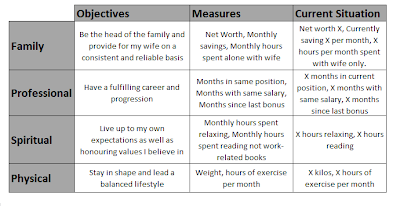At this early stage of my life I am still experiencing
many “firsts” in my professional life as well as my personal life, but less and
less frequently these moments come to me. I search for these “firsts” wherever
I can because they accelerate my personal growth and make me more prepared for
what is to come. Not all of these experiences will receive their own blog post,
but making my first million is one that does.
I have been working with a local consulting firm in South-East
Asia since 2011 and mainly my work has been conducted in large cities such as
Jakarta and Singapore, but I have been very lucky to visit several villages and
rural communities in my time here. I have also travelled across the region in
my spare time with my beautiful wife. I have gotten to know parts of Indonesian
culture and learned a lot about living abroad as a Norwegian and a foreigner in
this country, but I am in no way a “veteran” in the expat-life yet.
I have received several emails,
private messages and Skype calls on the topics of immigration, job-hunting and
living as a foreigner in Indonesia. Generally, my advice is to look for a job
in a large company in your home country and aim to get posted abroad. My
recommended approach however takes time and may mean that you have to spend
many years “paying your dues” before you get the opportunity to be stationed
abroad. In this blog post I have noted some of my opinions, pointers and
experiences for expats and especially for those without a company placement, the
“Local-Hire Expats”.
 |
| Picture: www.heenriko.deviantart.com/art/Sommerfuggel-I-Vinterland-284287065 |
I come from Norway and have
always found our public services to be great, welcoming, accessible and easy to
use. While this may be true for Norwegians and any visitors who have already learned
how to speak Norwegian, this is definitely not the case for all foreigners. I
had the privilege of volunteering with the Norwegian Red Cross in a program called
“the Refugee-help” (name sounds better in Norwegian). I spent some time every
week with an African man, a father of one who had recently arrived in the
country with his wife. He had a master’s degree from his home country and was a
chess-player far beyond my skills (which really doesn’t say much, but that is
the only indication I have of his skill level).
For my friend and his family, English
was their third language as his local language and French were the two he was the
most familiar with. As most (all?) immigrants in Norway, he was enrolled in a mandatory
Norwegian class sponsored by the government and had little opportunity to
improve his English as he mainly socialised with his countrymen and spoke his
native tongue. This left him in a limbo with limited English skills and very
limited Norwegian skills which led to many challenges related to both paperwork
and basic communication with the Norwegian government, not to mention the
Norwegian neighbours and work-colleagues. I am now personally very aware of the
humbling feeling that lack of communication skills can lead to, but my
interactions with my African friend taught me that communication is only partly
about which language we speak and mainly about openness and willingness to work
towards mutual understanding.
I am replacing a local talent, why?
As a foreigner, I am bringing
knowledge and experience from Norway and other countries where I have worked
and studied. This combination of experiences is a unique commodity. This
knowledge should be (and must be according to Indonesian law) shared and used
to empower local colleagues. Taking a moment to think about my unique
experiences and my unique skillset has helped me identify the best role for me
and the best place to begin a job-hunt. Is my greatest asset in life “Being an experienced
English speaker” or “Having education from a fancy school”? I thought beyond my
CV and certifications, to discover what it is I bring to the table that nobody
else in my host country or maybe the whole world can.
 |
| Picture: www.apex-cg.com |
Do I add more value than a “real” local hire?
There are many tax and
immigration papers that need to be prepared in order to secure work permits and
legal requirements here in Indonesia. As a general rule, the employer pays for
these processes and covers all of these expenses. This of course comes in
addition to the considerably higher salary level expected and received by most “western”
foreigners here. I kept this humbling fact in mind as I compare what I was
offered to what I would be offered in Norway. Until my talent becomes fully
developed, I am prepared to accept local terms. If you are a spread sheet
addict like me, do not forget to factor in lower living-costs and tax levels in
your host country when comparing offers.
I am a visitor in Indonesia, a guest of its people.
I hate traffic-jams, they make
me tired and drain my energy. In my hometown, Trondheim, the total number of
vehicles is the same as in a small Jakarta neighbourhood. This made my meeting
with Jakarta traffic quite shocking and I found myself comparing Jakarta to
Trondheim. Reality however is that there is no comparison that can be made
because the differences are not black and white. One way of doing things is not
always right and the other is wrong. In Jakarta, the options that worked best
in Trondheim may not be available nor apply. As a guest in someone’s house,
would you complain about how they have chosen to decorate their house or why
they made that choice? I took a few deep breaths and applied my sense of logic
to the situation: When possible I bring my fully charged smartphone and laptop
along for a long taxi-ride in heavy traffic.
I landed a job with a local firm through applying these and similar
lessons. Coming here and getting a job has been highly rewarding and like all things
that are worth pursuing: it has taken a lot of effort as well.
Oh, if you clicked this blog post to read about my million: Indonesian
salaries are paid in IDR. This is indeed the story of how I made my first
million Indonesian Rupiah…
 |
| Picture: www.asiaphotopro.com/stock-photo/one-million-indonesian-rupiah |
If you would like to comment
here or on my Facebook-page, I would like to know: “What are your questions or tips related to working and living abroad?”















